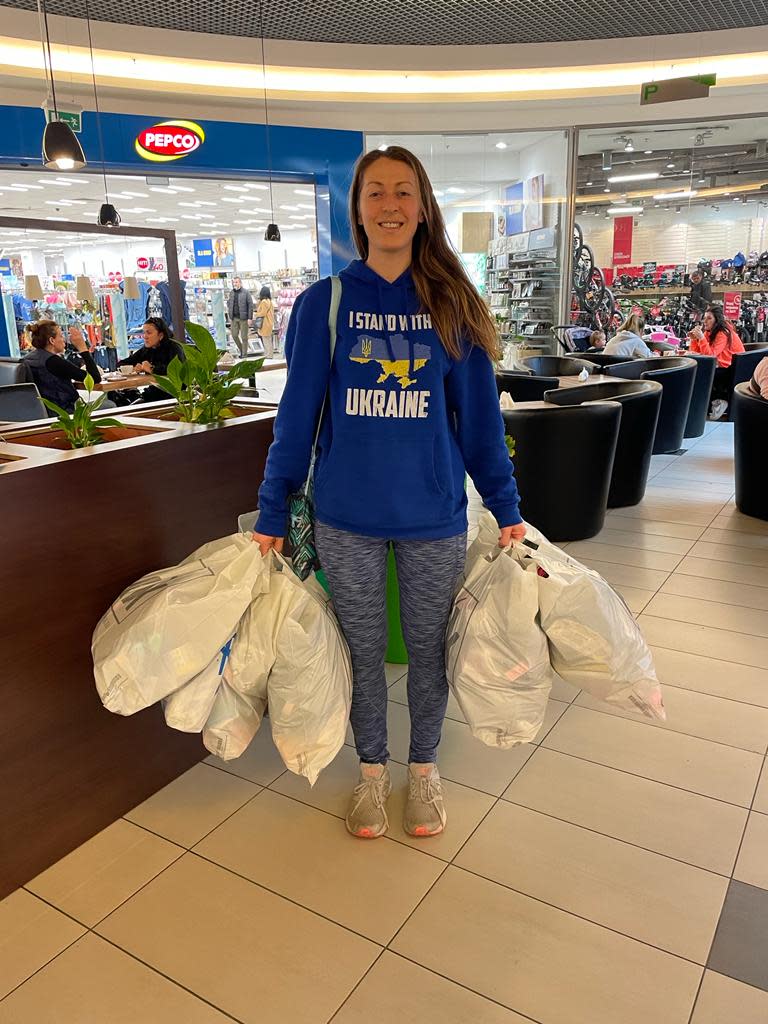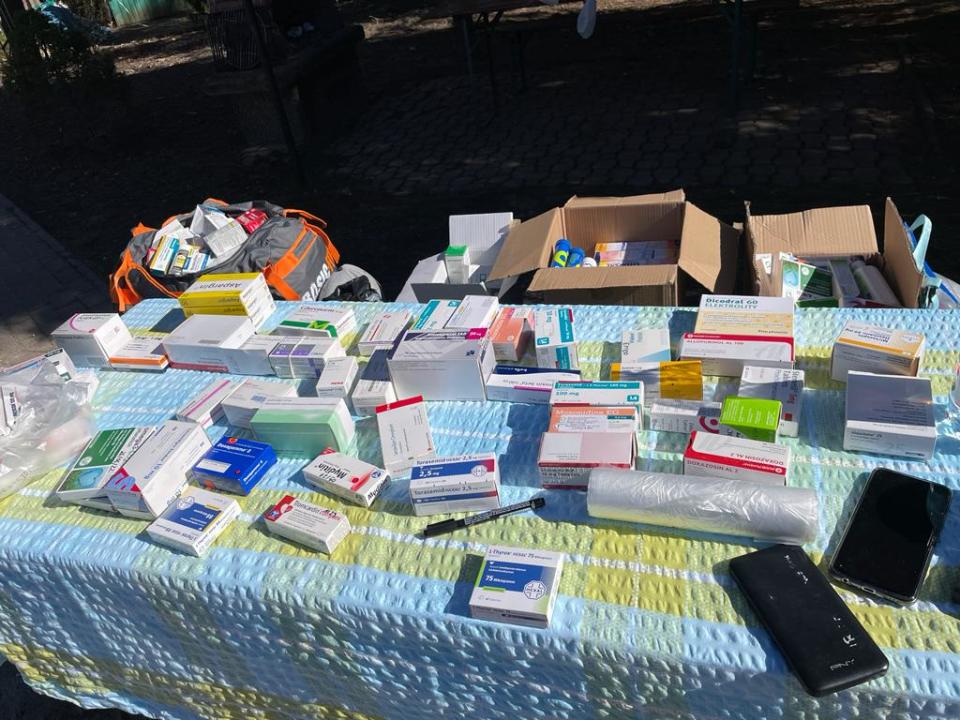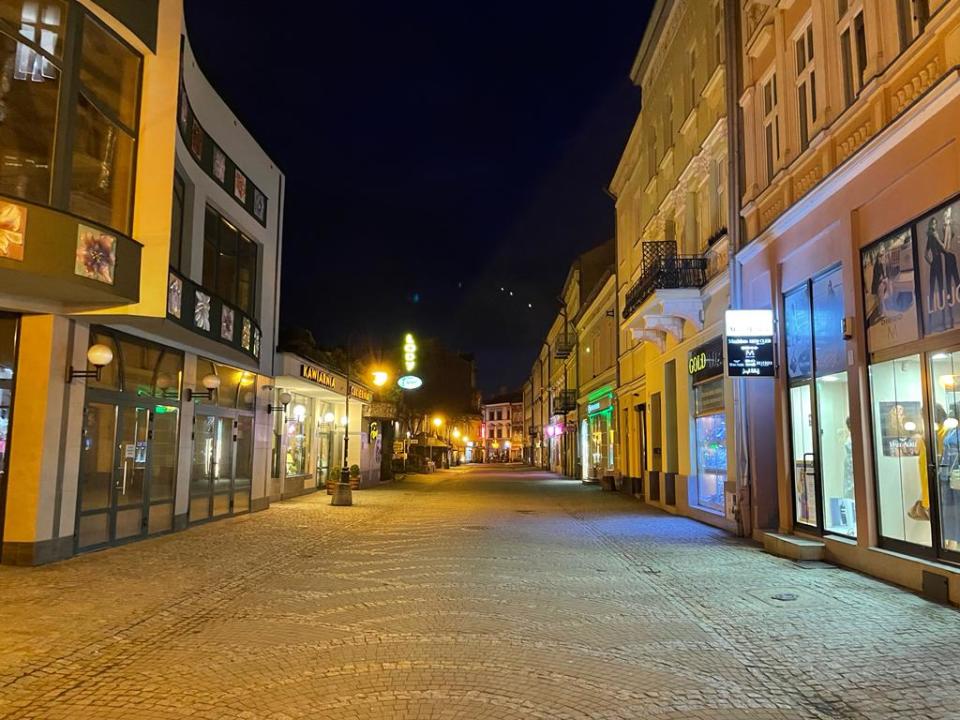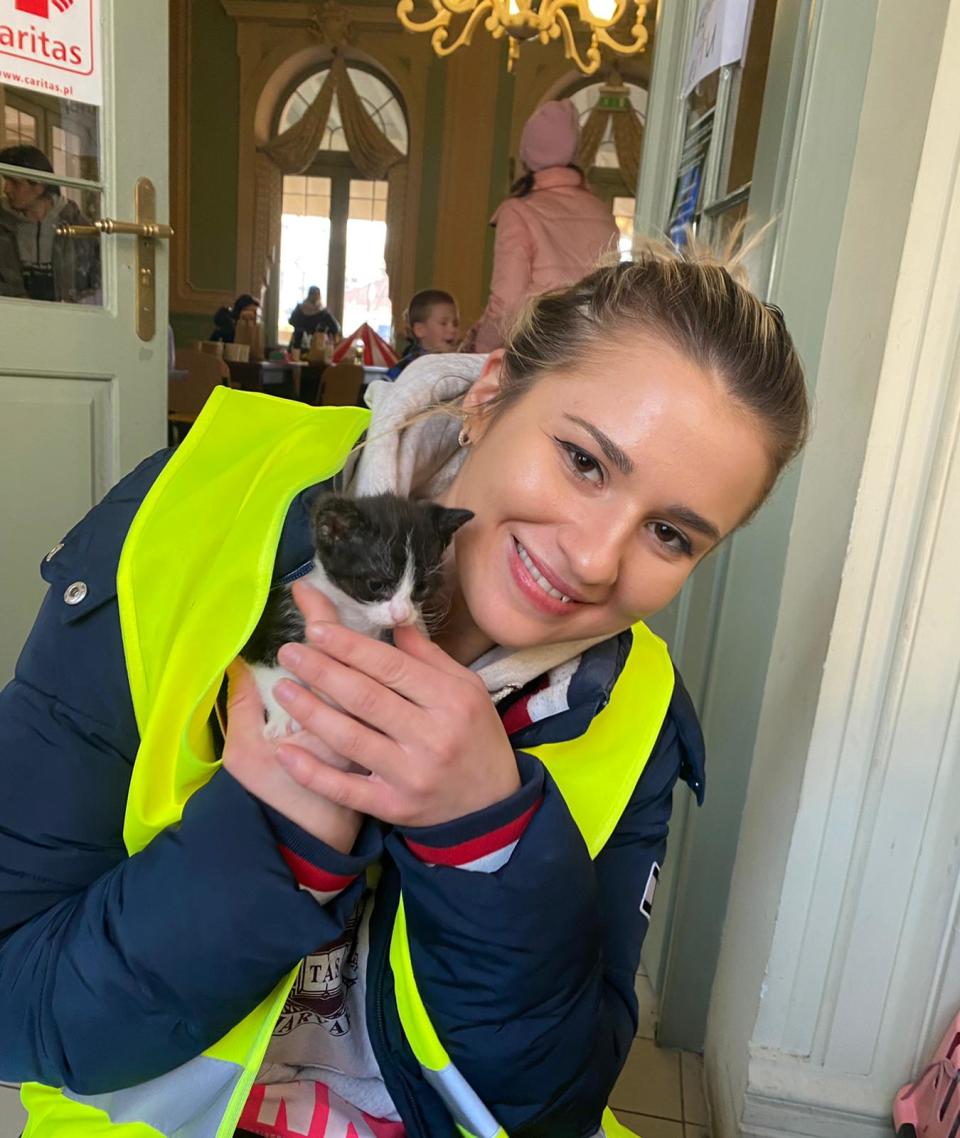Rochester volunteers working with Ukrainian refugees in Poland want to recruit others
Like most of the world, Natalia Golub watched the Russian invasion of Ukraine with horror. A doctor in preventive medicine at Rochester Regional Health, and a fluent Russian speaker, Golub knew she could do more than sit around and watch it unfold, but she was pregnant at the time and couldn't just leave.
Golub was born in Russia to a Ukrainian father and Russian mother. After her parents split up, Golub and her mother moved to Virginia when she was 8 years old.
In March, Golub suffered a miscarriage. Then, she read the news of a maternity hospital in Mariupol that was shelled and she saw the viral picture of a pregnant woman being carried on a stretcher to a new hospital. Both the woman and her baby died.
"That was the moment when I decided I had to go to Poland and do anything I could, however small," said Golub. "The unimaginable loss of this woman and her baby stuck with me, and I couldn’t sit at home and just watch the news and send money and hope it helped."
After reading articles about volunteers going to the Polish-Ukrainian border, Golub tried reaching out to the Polish Red Cross and other organizations about what steps she needed to take. Nobody got back to her, so Golub took vacation time and traveled to Przemyśl, a city in southeastern Poland near Ukraine with a large influx of refugees.
Doctor speaks out: Ukraine: Doctor talks of grief, distress and the need to help

She thought she would work mostly treating patients, but she quickly realized that she would be of more use as an interpreter in the Przemyśl train station. While Golub doesn't speak much Ukrainian, most Ukrainians speak Russian, making her indispensable as an interpreter on the border for disoriented refugees who don't speak Polish.
Her time at the train station opened her eyes to the harsh realities that Ukranian refugees were facing. Golub said Ukrainians arriving to Przemyśl didn't even know where they were, many just fled on trains and buses without a destination in mind.
For Subscribers: Love, war and chaos. Rochester man and new Ukrainian bride relieved to be back in US
"(They felt) relief when they realize I and other volunteers speak Russian or Ukrainian and they are able to communicate and figure out their next steps," said Golub.
Aside from helping them reach whatever destination they need to reach, Golub and the other volunteers also help by purchasing socks, clothes, underwear and, in some cases, paying for temporary hotel rooms so that the refugees who have been traveling for days can shower and sleep in beds.
"It is priceless to see people’s faces the next morning after they spent the night at a hotel where it’s relatively quiet, they can shower, they feel safe; it is just them and their family and a brief time for respite," said Golub.
The message Golub said she hopes to get out is that Ukrainian refugees, like most refugees, have no desire to leave their country. For them, it's temporary, and the long journey doesn't stop once they arrive in Poland or other countries. Many are uncertain about housing, food, job and safety, and some have even returned to Ukraine.

"To hear their stories of coming from Mariupol, Kharkiv (and the) Donetsk region, of unspeakable horrors they have experienced, to see their tears, is heartbreaking," said Golub. "It’s unimaginable what people have endured in leaving Ukraine, and equally unimaginable to think of the physical long journey ahead to their destination and the uncertainty that awaits them there."
Golub's was supposed to return to Rochester by the end of April, but she chose to take a leave of absence from her job at RRH and continue working on the border. Her goal is to get more Rochesterians, especially those who speak Ukrainian or Russian, to come help.
And that is how she met Leeda Burda, a nurse from East Irondequoit, in Przemyśl. Golub and Burda had never met in person but instead the two Rochesterians connected online through ROC Maidan, a local Ukrainian nonprofit, over their mutual decision to travel to Poland to help refugees.

Raising awareness on human trafficking
Like Golub, Burda traveled to Poland to volunteer as an interpreter. Although she was born and raised in the U.S. to Ukrainian parents, Burda would spend summers in Ukraine with her dad after a divorce. Her family in Rochester is also very involved in the local Ukranian community.
Her father and his family were able to leave Ukraine for Poland and are safe, but Burda still has family in the country she checks in on daily.
She arrived at Przemyśl on Apr. 1 and worked on the German desk at the train station, helping refugees find accommodations in Germany.
Burda found that both her English and Ukrainian language skills became an asset to easily communicate between the refugees and the country she was volunteering for.
At first, Burda was doing similar work to Golub, but she would travel between different camps in several cities in the border assisting with interpretation. It was there that she and her group encountered something more sinister than anticipated.

Both Golub and Burda noted that most of the refugees arriving to Przemyśl were women and children, and at a camp in Korczowa, Burda noticed that security was nonexistent compared to other refugee camps near the border.
"I was working at a Przemyśl camp, and their security was great. I went to another camp in Korczowa and me and the team I was with offered security and military connections, but they said no. Turns out this camp is a hot spot for human trafficking," said Burda.
Burda is currently in England working with other volunteers she met in Poland to bring more media awareness to the human trafficking issue currently happening in the border.
On March 17, the BBC reported that the war has led to an increase of trafficking of women and children arriving to camps that are "displaced and disoriented, often with no idea where to go next ... forced to put their trust in strangers."
Burda was recently featured by BBC Yorkshire speaking about the issues she noticed while in Poland.
"It's horrible that they (the refugees) think that they're coming to safety, but instead run the risk of getting trafficked. The sad truth is that there is profit in war," said Burda.
Although she is set to return to Rochester by May, Burda said it's her responsibility to keep working on raising awareness to this issue.
"I made connections with permanent volunteers, so I'm going to have them go in and keep checking in on the camps," said Burda.
Seeking more volunteers
Both Golub and Burda agree that more volunteers are needed, and they hope that their stories inspire people in Rochester to go to Poland.
Burda recommends that people don't go alone, especially women.
"(Volunteering) is a good thing that I would recommend other people do, but make groups or go with at least some other person," said Burda.
Burda has developed connections with an organization called MadFoundation that is actively seeking out interpreters and drivers, as well as donations. To donate or apply to volunteer, visit https://www.madfoundation.com/
As for Golub, her recommendation is that people interested in going to volunteer stay for more than two weeks because learning the ropes takes time. She believes that the more volunteers that come, individual families and refugees can receive better care and attention.
Golub has also created a Google Form for anyone interested in volunteering at Przemyśl. She said she will use the information to help connect potential volunteers with organizations that are working to provide interpreters, transportation and food and other refugee services.
"From my experience, it makes a big difference in decreasing stress of families and having them feel loved and cared for, even for the brief time that they are in Przemyśl," said Golub.
Natalia Rodríguez Medina is a bilingual reporter covering the Puerto Rican and Latino population for the Democrat and Chronicle in partnership with Report for America. Follow her on Twitter at @nataliarodmed or email her at nrodriguezmedina@gannett.com.
You can support her work with a tax-deductible donation to Report for America.
This article originally appeared on Rochester Democrat and Chronicle: Rochester women want more people to volunteer with Ukrainian refugees

